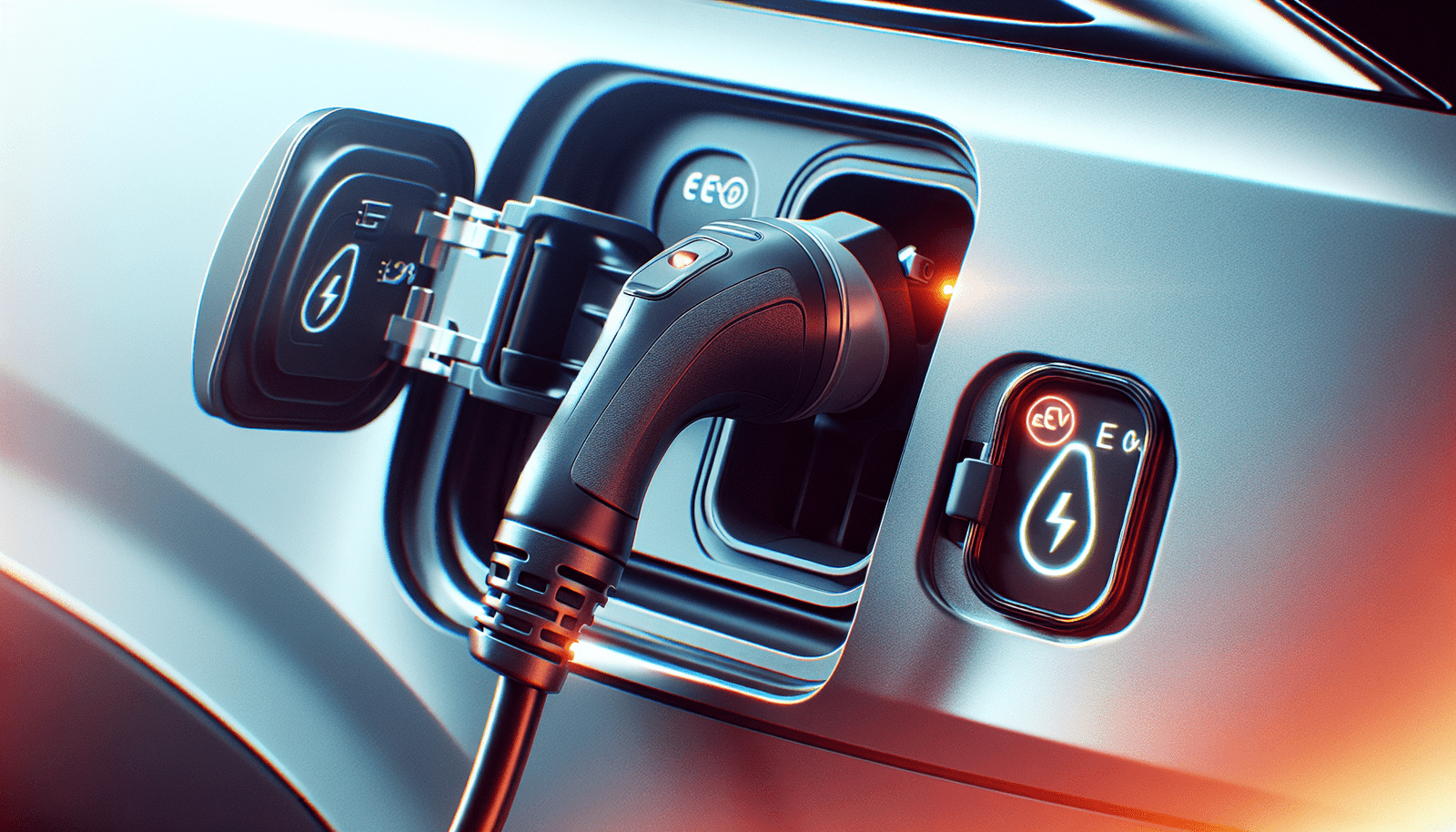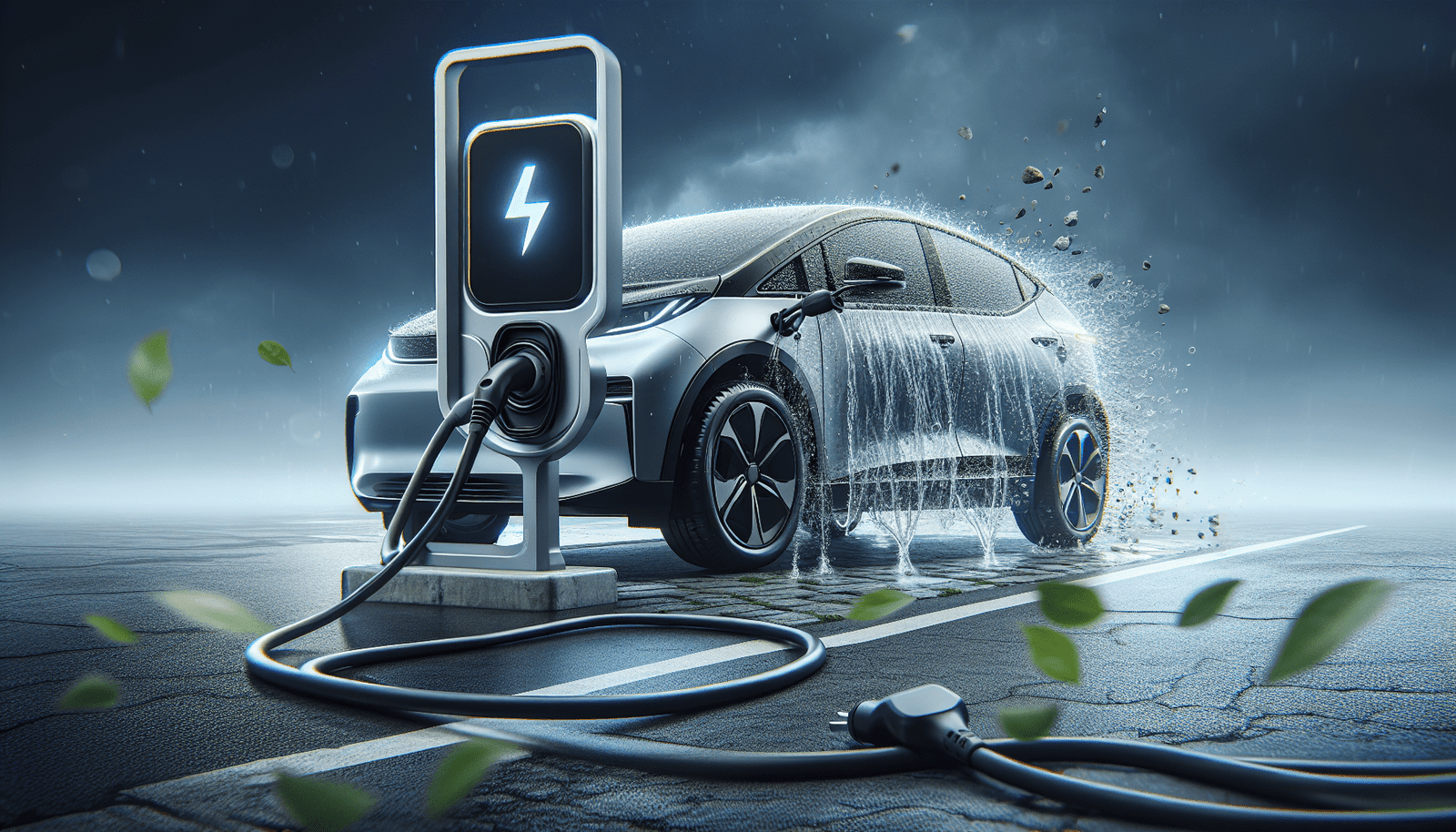Are you tired of constantly worrying about finding an available charging station for your electric vehicle? Look no further! In this article, we will be discussing the ins and outs of EV charging reservation systems. Whether you’re an avid electric vehicle user or simply someone searching for product reviews, this content aims to provide you with all the information you need. We will cover frequently asked questions in a friendly and approachable tone, making it easy for you to understand even if you’re not familiar with the jargon. So, sit back, relax, and get ready to learn about the convenience and peace of mind that EV charging reservation systems can bring to your life. And don’t forget to check out our online store for the latest offerings!
Understanding EV Charging Reservation Systems
What an EV Charging Reservation System is
An EV Charging Reservation System is a technology-based platform that allows electric vehicle (EV) owners to reserve and schedule charging sessions for their vehicles. It provides a convenient and efficient way for EV owners to ensure a charging spot is available when needed, especially in public charging stations where availability can sometimes be limited.
Main purpose of an EV Charging Reservation System
The main purpose of an EV Charging Reservation System is to optimize the usage of charging stations, ensuring that EV owners have access to a charging spot when they need it. By allowing users to reserve a charging session in advance, it minimizes the chances of arriving at a charging station and finding all the spots occupied. This helps reduce range anxiety and provides peace of mind for EV owners.
Importance of EV Charging Reservation Systems in today’s society
With the increasing adoption of electric vehicles, the demand for charging infrastructure has also grown. EV Charging Reservation Systems play a crucial role in managing this demand effectively. They help alleviate the strain on charging networks, reduce waiting times, and promote the efficient use of charging stations. By encouraging EV owners to plan their charging sessions in advance, these systems contribute to a more sustainable and convenient EV charging ecosystem.
Components of an EV Charging Reservation System
Hardware required
To implement an EV Charging Reservation System, certain hardware components are essential. These include EV charging stations equipped with built-in reservation capabilities or compatible with reservation modules. Additionally, some charging stations may require additional hardware devices such as communication modules, display screens, and sensors to facilitate the reservation process effectively and provide real-time information to users.
Software required
The software component of an EV Charging Reservation System is the backbone that enables the reservation process and manages the entire system. It includes the user interface for EV owners to make reservations, a backend system for managing reservations and charging station availability, and communication protocols for integration with other systems. The software should also include features for payment processing, data analytics, and reporting to ensure a seamless user experience and efficient operation of the reservation system.
Functioning of an EV Charging Reservation System
An EV Charging Reservation System operates through a series of interconnected processes. When an EV owner wants to reserve a charging session, they access the system’s user interface, either through a mobile app or a web portal. They select a suitable charging station, choose a specific time slot, and confirm the reservation. The system then updates the availability status of the charging station, reserves the spot for the specified time, and sends a confirmation to the user. At the scheduled time, the EV owner can arrive at the charging station, connect their vehicle, and begin charging.
Types of EV Charging Reservation Systems
Public charging reservation systems
Public charging reservation systems are designed to cater to the needs of EV owners who rely on public charging stations. These systems allow users to reserve charging spots at various public locations such as parking lots, shopping centers, and highway rest areas. Public charging reservation systems are essential in ensuring fair access to charging infrastructure and reducing congestion at popular charging locations.
Private charging reservation systems
Private charging reservation systems are typically implemented in residential complexes, office buildings, and other private premises with dedicated EV charging stations. These systems provide a convenient way for residents or employees to reserve charging spots exclusively for their use. Private charging reservation systems help manage the limited resources of charging stations in private settings, ensuring that each user has equal access to charging facilities.
Benefits of Using EV Charging Reservation Systems
Efficiency and convenience
One of the key benefits of using an EV Charging Reservation System is the enhanced efficiency and convenience it offers. Instead of relying on a first-come, first-served basis, EV owners can reserve a charging spot in advance based on their preferred time and location. This eliminates the need for unnecessary waiting and ensures that charging stations are utilized optimally.
Cost savings
EV Charging Reservation Systems can also contribute to cost savings for both EV owners and charging station operators. By reserving a charging session, EV owners can plan their charging activities according to optimal pricing periods, taking advantage of off-peak rates and saving money on electricity costs. For charging station operators, implementing a reservation system allows them to accurately track and bill for charging sessions, ensuring fair pricing and revenue generation.
Improved energy management
The integration of EV Charging Reservation Systems with energy management software enables better control and optimization of electricity usage. By allowing users to schedule their charging sessions, the system can distribute the charging load more evenly throughout the day, preventing peak demand surges and minimizing strain on the electrical grid. This not only benefits the stability of the grid but also helps promote the use of renewable energy sources and reduce carbon emissions.
How to Choose the Right EV Charging Reservation System
Things to consider
When selecting an EV Charging Reservation System, there are several factors to consider. First, evaluate the compatibility of the system with your existing charging infrastructure and hardware. Additionally, consider the scalability of the system in terms of accommodating future expansion. User-friendly interfaces, customizable features, and integration capabilities with other software platforms are also crucial factors to assess.
Finding reliable vendors
To ensure a successful implementation and ongoing support, it is important to find a reliable vendor for the EV Charging Reservation System. Look for vendors with a proven track record, positive customer reviews, and a comprehensive service offering. Verifying the vendor’s expertise, support capabilities, and commitment to software updates and maintenance is essential for a smooth and hassle-free experience.
Comparing different reservation systems
Before making a final decision, compare different EV Charging Reservation Systems available in the market. Evaluate the features, pricing models, and customer support provided by each system. Consider the specific requirements of your EV charging infrastructure and choose a system that aligns with your operational needs and long-term goals. Seeking recommendations from industry experts or other EV owners can also provide valuable insights.
Installation and Setup of an EV Charging Reservation System
Professional installation vs. DIY
The installation of an EV Charging Reservation System can be done either by professionals or as a do-it-yourself (DIY) project. While DIY installation may seem cost-effective, it is crucial to consider the complexity of the system, the technical expertise required, and the potential risks involved. Professional installation ensures proper configuration, integration, and adherence to safety standards, reducing the chances of errors or system malfunctions.
Initial setup and configuration
Once the hardware components are installed, the initial setup and configuration of the EV Charging Reservation System can be performed. This includes connecting the charging stations to the reservation software, configuring user access controls, setting up payment gateways, and testing the system for compatibility and functionality. It is important to follow the manufacturer’s instructions and guidelines during the setup process to ensure a smooth operation.
Ongoing maintenance requirements
To ensure the optimal performance of an EV Charging Reservation System, ongoing maintenance is necessary. This may involve regular software updates, hardware inspections, and troubleshooting of any technical issues that may arise. It is recommended to establish a maintenance schedule and contract with a reliable service provider who can provide timely support and assistance when needed.
Understanding the Costs Involved
Estimated costs for system implementation
The costs involved in implementing an EV Charging Reservation System vary depending on several factors such as the scale of the installation, the chosen vendor, and the specific hardware and software requirements. The costs may include the purchase or lease of charging stations, reservation software licenses, integration fees, installation charges, and any additional hardware devices or accessories. It is important to obtain detailed quotes from vendors and consider both upfront and ongoing costs when budgeting for the system implementation.
Potential costs for maintenance and upgrades
In addition to the initial implementation costs, it is important to consider the potential costs for ongoing maintenance and system upgrades. This may include fees for software updates, hardware repairs or replacements, and technical support services. Understanding the long-term costs associated with the EV Charging Reservation System will help in better financial planning and ensuring the continued operation of the system.
Payment options and plans
When choosing an EV Charging Reservation System, it is essential to consider the payment options and plans available. Some systems offer pay-as-you-go models, where users are charged based on the duration of their charging sessions. Others may provide subscription-based plans or discounted rates for frequent users. Evaluating the payment options and plans will help in selecting a system that aligns with your budget and usage patterns.
Troubleshooting Common Problems in EV Charging Reservation Systems
Common technical glitches
Like any technology-driven system, EV Charging Reservation Systems may occasionally encounter common technical glitches. These can include issues with the reservation software, network connectivity problems, or compatibility issues between the charging stations and the software. It is important to maintain a troubleshooting guide provided by the vendor and establish protocols for addressing and resolving these glitches promptly.
Software update issues
Software updates are crucial for maintaining the security, performance, and compatibility of the EV Charging Reservation System. However, sometimes software updates can lead to unexpected issues such as compatibility conflicts or temporary system unavailability. It is important to schedule software updates during off-peak hours and perform thorough testing before implementing them in a live environment. Regular communication with the software vendor and staying up-to-date with the latest release notes can help mitigate any potential update issues.
Resolving hardware failures
Hardware failures can occur in EV Charging Reservation Systems, primarily due to wear and tear, electrical surges, or manufacturing defects. In such cases, it is important to troubleshoot the hardware components, check for loose connections, and verify power supply adequacy. If the issue persists, it may be necessary to contact the hardware manufacturer or a professional technician for repairs or replacements. Regular maintenance and periodic inspections can help identify potential hardware failures before they occur.
Future Trends in EV Charging Reservation Systems
Emerging technologies
The field of EV Charging Reservation Systems is constantly evolving, with various emerging technologies paving the way for future advancements. One such technology is wireless charging, which eliminates the need for physical connections and enables seamless charging experiences. Additionally, advancements in artificial intelligence and machine learning can enhance the reservation system’s predictive capabilities, optimizing charging sessions based on user behavior and charging patterns.
Potential improvements in efficiency and user experience
As EV Charging Reservation Systems evolve, there is a focus on improving efficiency and enhancing the user experience. This includes integrating smart grid technologies to dynamically manage energy distribution, implementing real-time monitoring and reporting features to provide accurate charging station availability information, and offering personalized recommendations to users based on their preferences and historical data. These improvements aim to streamline the EV charging process and make it more user-friendly.
Impact of government policies and regulations
Government policies and regulations play a significant role in shaping the future of EV Charging Reservation Systems. As the demand for electric vehicles continues to grow, governments are increasingly implementing initiatives to support and incentivize the adoption of EVs. This includes the integration of reservation systems as part of public infrastructure planning, the establishment of standardized protocols and communication standards, and the formulation of regulations to ensure fair usage and availability of charging infrastructure.
Customer Reviews and Experiences
Sharing popular user reviews
Customer reviews provide valuable insights into the experiences and satisfaction levels of users who have utilized EV Charging Reservation Systems. Some popular user reviews highlight the convenience and ease of use that these systems offer, with users praising the ability to reserve charging spots in advance and avoid waiting times. Positive reviews often mention the cost savings achieved through optimal charging scheduling and the overall positive impact on EV ownership experience.
Addressing common customer complaints
While EV Charging Reservation Systems generally receive positive reviews, some common customer complaints can be addressed. These may include occasional system glitches or unavailability of desired time slots due to high demand. To address these complaints, operators can focus on improving system reliability, increasing charging station capacity, and optimizing software algorithms to allocate charging spots more effectively. Regular communication with users and addressing their concerns promptly can help mitigate dissatisfaction.
Success stories and case studies
Success stories and case studies from companies or organizations that have implemented EV Charging Reservation Systems offer valuable insights into the benefits and outcomes achieved. These stories often highlight the increased utilization of charging stations, improved customer satisfaction, and the positive impact on charging infrastructure management. Case studies can provide guidance and inspiration to individuals and businesses considering the implementation of an EV Charging Reservation System.
In conclusion, EV Charging Reservation Systems play a vital role in optimizing the use of charging infrastructure, promoting convenience for EV owners, and contributing to efficient energy management. By understanding the components, benefits, installation process, and maintenance requirements of these systems, individuals and businesses can make informed decisions and take advantage of the many advantages they offer. As technology continues to advance and government initiatives support the widespread adoption of EVs, the future of EV Charging Reservation Systems looks promising, promising a more sustainable and user-friendly EV charging ecosystem.




